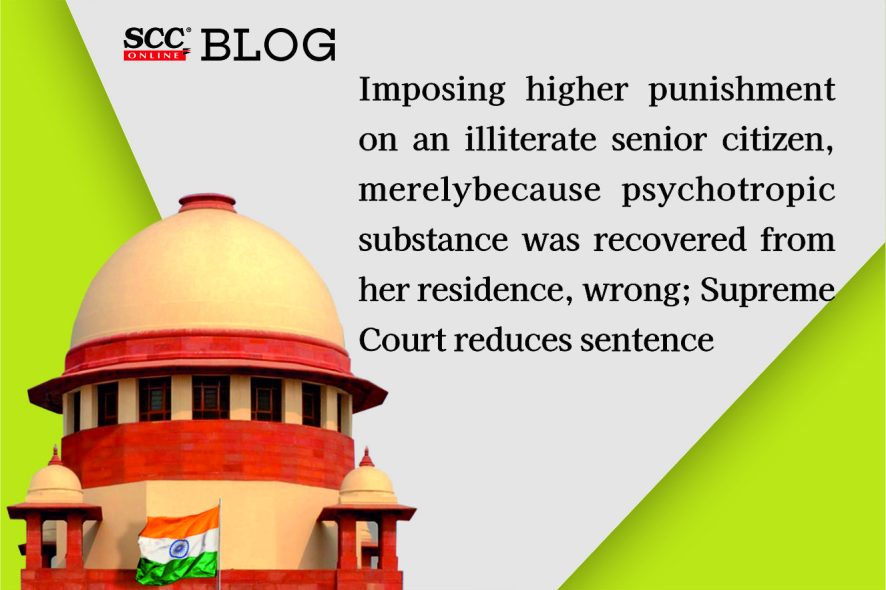Supreme Court: In an appeal directed against the judgment and order upholding conviction of the appellant for the offence under Section 20(b)(ii)(C) of the Narcotic Drugs and Psychotropic Substances Act, 1985 (NDPS Act), the bench of Ajay Rastogi * and C.T. Ravi Kumar, JJ has reduced the sentence after observing that the appellant was an illiterate senior citizen on the date of the incident, was having no criminal record, and was from a rural background, completely unknown to the law and unaware of what was happening around her.
The trial Court had sentenced the appellant to 15 years rigorous imprisonment and a fine of Rs. 1 Lakh and in default, to further undergo rigorous imprisonment of 3 years. The Supreme Court has reduced the sentence to 12 years rigorous imprisonment and a fine of Rs. 1 lakh and in default, to further undergo rigorous imprisonment of six months.
In this case the appellant along with her two children was charged under Section 20(b)(ii)(C) of the NDPS Act for having joint possession of the commercial quantity of illegal ‘Ganja'(Cannabis)of 05 quintal and 21.5 kilogram, which was, as alleged, in their joint knowledge. The trial Court acquitted the other four persons of all the charges and held the appellant guilty under the NDPS Act, as she was in possession of the house from where the psychotropic substance was recovered.
The Court noted that the order of acquittal against the four co-accused persons was never a matter of challenge at the instance of the prosecution. Further, the appellant preferred an appeal before the High Court against the impugned judgment but the High Court, examining the conviction on merits, took note of the bare facts regarding the compliance of Sections 42, 50 and 55 of the NDPS Act, and since the psychotropic substance was recovered from the residence of the appellant, considered it to be the basis for upholding conviction and sentence of the appellant.
Moreover, the Court viewed that
“neither the trial Court nor the High Court has considered that the lady was illiterate and a senior citizen, was indeed residing but completely unknown to law, with two grown up children, with no previous background of being involved in any kind of criminal cases at any point of time in her lifetime”.
The Court observed that all five accused persons faced trial, but unfortunately the appellant alone was held guilty, and the trial Judge, without examining in totality of the matter and taking the other salient facts into consideration, sentenced her to 15 years’ rigorous imprisonment. It further observed that the minimum sentence prescribed under the NDPS Act for such offence under Section 20(b)(ii)(C) is 10 years which may extend to 20 years with a fine of Rs. 1 lakh which may extend to Rs. 2 lakhs, and while imposing higher than the minimum punishment, the factors which are to be taken into consideration have been provided under S. 32-B of the NDPS Act, however, the trial Judge as well as the High Court have not taken those factors into consideration. Thus, in the given facts and circumstances, the Court, while upholding the conviction of the appellant, and considering her old age, reduced her punishment.
[Budhiyarin Bai v. State of Chhattisgarh, 2022 SCC OnLine SC 992, decided on 10.08.2022]
*Judgment by: Justice Ajay Rastogi







